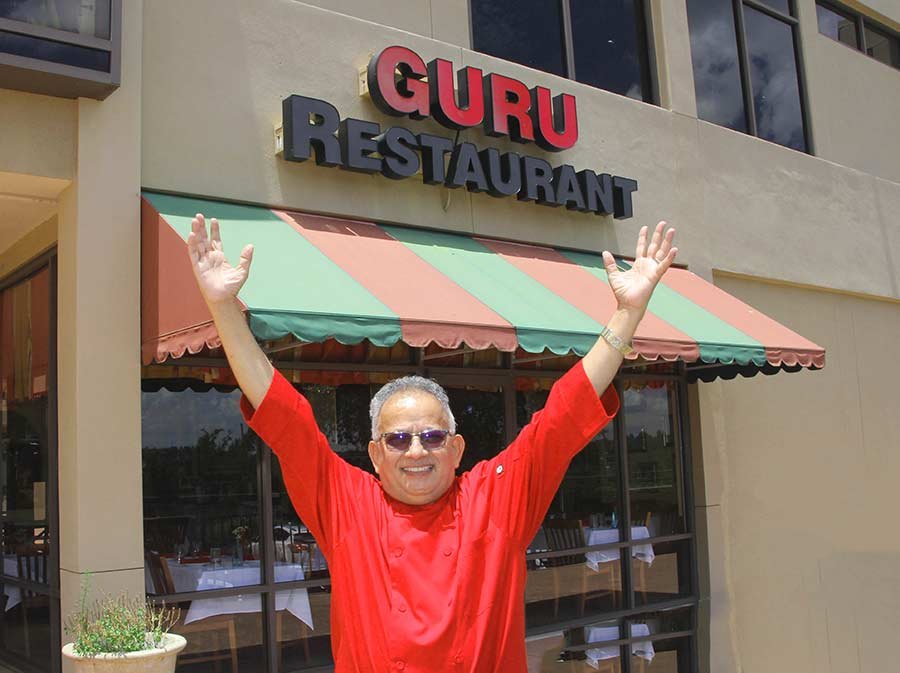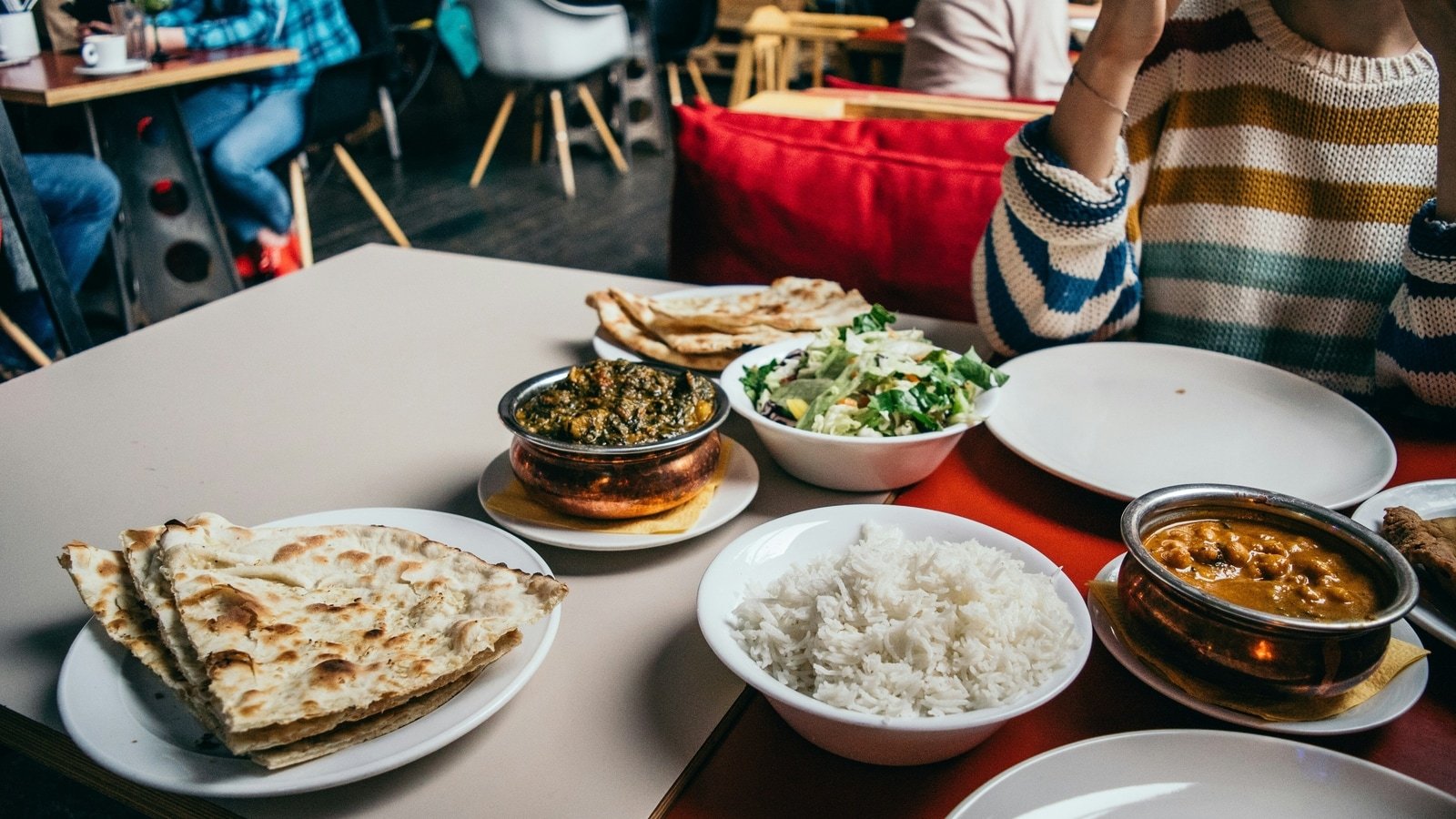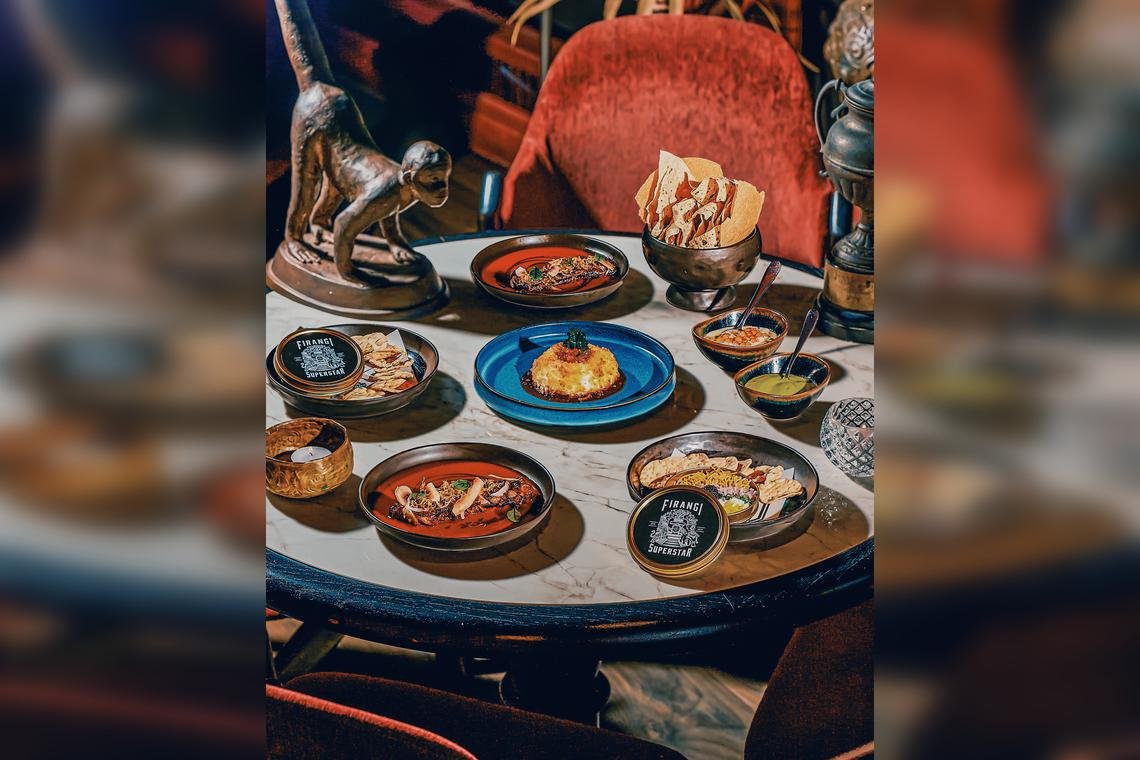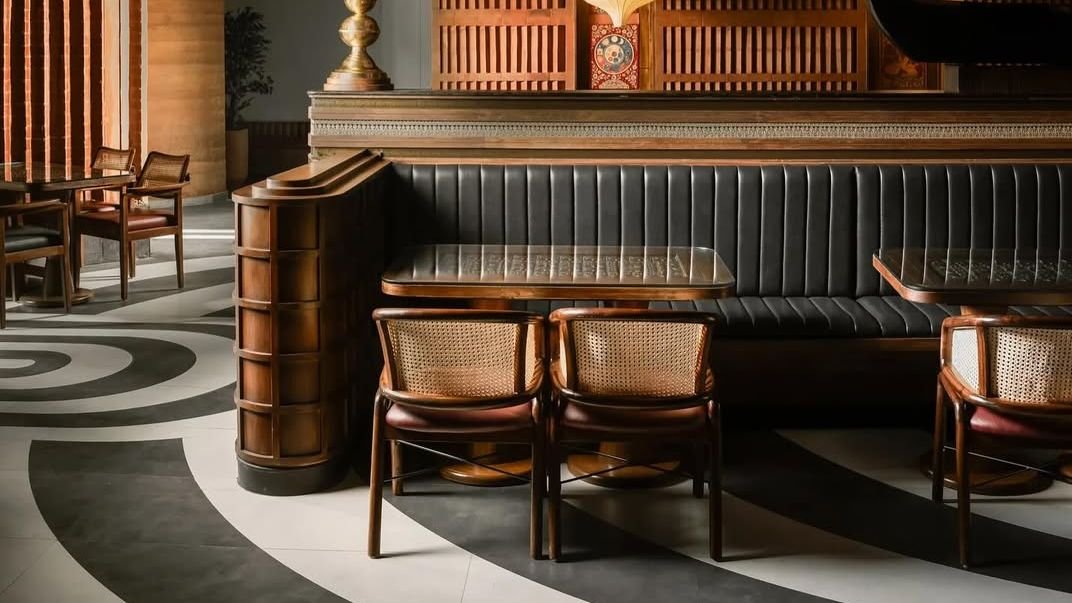Restaurants & Food
Foodie Spotlight Shines On Guru Indian Restaurant Celebrating A Decade Of Excellence With Community, Cuisine, and Accolades

Guru Indian Restaurant has been celebrating 10 successful years by offering you a local experience in top quality family-owned dining with a diverse variety of unique gourmet Indian recipes. Guru Indian Restaurant was founded in 2014 by Master Chef Uday as a fine dining Indian food emporium.
Uday recently celebrated his 70th birthday by inviting all the South Lake Police, Sheriffs, Fire Fighters, EMTs, government staffs, city officials and area VIPs for a big free buffet filled with music and special presentations. With help from his family and as part of his birthday celebration, he generously treated over 3000 boarding school children and the community to a free lunch back at his hometown in India.
For the past 10 years, Guru Indian Restaurant has consistently earned accolades such as Best Restaurant, Best Fine Dining Restaurant, Best Indian Food Restaurant, Best Romantic Restaurant, and Best Restaurant for Vegetarians. It has also been recognized as an award-winning finalist in several categories, including Best Food & Dining Customer Service, Best Family Restaurant, Best Chef – Uday Kadam, Best Caterer, Best Wait Staff, and Best Late Night Menu. Over the last eight years, the nationally respected TripAdvisor has named Guru one of the top restaurants in Central Florida.
Guru Indian Restaurant in Clermont proudly serves generous portions of authentic Northern Indian cuisine, made with the finest fresh ingredients. Enjoy flavorful beef, chicken, lamb, seafood, vegetarian, and vegan dishes, all cooked to your preferred spice level—mild, medium, or extra spicy.
Every dine-in experience begins with a complimentary welcome dish of Pappadam chips, served with onion and sweet mango chutneys. Finish your meal with homemade mango or pistachio ice cream, rice pudding, Gulab Jamun, or Ras Malai. Pair your meal with ice-cold beer, a variety of wines, Indian Chai Tea, sodas, or their popular Mango Lassi smoothie. Fresh naan—available in 10 delicious varieties—is baked to order in traditional clay ovens.
Celebrating 11 years this fall, Guru offers indoor and outdoor seating, a warm and attentive staff, and a welcoming atmosphere. It’s the perfect spot for date nights, celebrations, office lunches, or girls’ night out.
Guru’s, located at 2400 US Highway 27, suite 101, Clermont, is open daily from 11 am to 10 pm for lunch and dinner. Walk-ins and reservations welcome. Takeout, DoorDash, Uber Eats, and catering available. Call 352-241-9884 or visit www.MyGuruToGo.com and www.GuruRestaurantCatering.com to see their full menu. Follow them on Facebook at https://www.facebook.com/gururestaurantclermont.
(informaiton and pictures provided by Larry Oskin, MKTG Sols
Restaurants & Food
28 new restaurants in India you should grab a meal at this August – Vogue India
Restaurants & Food
The Taste by Vir Sanghvi: Indian restaurants shine globally with Michelin stars and authentic flavours

You have probably heard of Semma, the only Indian restaurant in New York to win a Michelin star. And of Gymkhana, the only Indian restaurant with two Michelin stars in London. Of Jamavar, the only Indian restaurant in the world to have won Michelin stars in three different avatars in three different cities: London, Doha and Dubai.
What, you may well ask, do these restaurants have in common?
There are two answers to this question. The first is the obvious one: they are all Indian restaurants run by chefs who have worked or trained in India. Vijaya Kumar of Semma is very proud of cooking the authentic cuisine of Tamil Nadu’s not-so-elevated castes and makes it hot and spicy. (He started out at the Taj Connemara in Chennai.) His boss, and one of the founders of Unapologetic Foods, which owns Semma, Chef Chintan Pandya, says that the group gets its name from its determination to refuse to apologise for the flavours and oil that characterise Indian food. (Chintan is ex-Oberoi.)
In London, one of the first things that Karam Sethi, the chef-founder of Gymkhana, said to me when I called to congratulate him on Gymkhana’s two stars was “it’s real Indian food, not ‘modern’ Indian.” Gymkhana serves the sort of food Indians actually eat, not a poncy, spice-deprived version. Gymkhana’s Executive Chef Sid Ahuja is ex-Oberoi and Sethi himself trained with ITC.
The most recognisable Indian of the top global restaurants is Jamavar. It was founded by Dinesh Nair, whose family used to own Leela Hotels, and is run by his whiz-kid daughter, Samyukta. The London Jamavar is international in clientele but you will nearly always see a top Indian movie star or cricketer there. This may have something to do with the fact that its chef, Surender Mohan, commands after his years working with the Leela group in India.
Samyukta and Surender took Jamavar to Doha where it became just one of two restaurants to win a Michelin star. (The other restaurant with a star is run by Alain Ducasse.) Next, they opened in Dubai and within a few months of opening, they had a star there too.
I met Surender at the Michelin ceremony in Dubai and was pleased to see that he was one of the few chefs not to be intimidated by the occasion and he gave the longest and best speech of the evening. But then I guess he is now used to attending these events in city after city.
Clearly something new and unusual is happening with Indian food abroad even if we don’t fully understand it here in India. There have been, broadly, four phases with Indian food in the West. The first was the ‘ethnic food’ phase when Indian food became the browner equivalent of chop suey and restaurants served mostly made-up Indian dishes at inexpensive prices.
The second was when Indian food went upmarket but was also Frenchified and plated. In the UK, restaurants serving this kind of food were celebrated and some got Michelin stars. In New York, Floyd Cardoz served two kinds of cuisine. At Tabla, he served a nouvelle take on Indian food and got three stars from the New York Times. But downstairs, at the Bread Bar, the food was more basic and less nouvelle. Even so, the general rule was that if you wanted rave reviews and high-profile rich guests, then you moved away from traditional Indian.
The third phase coincided with a global change in food preferences when French food ceased to be as admired as much. As El Bulli and later, Noma, set the trend, this was reflected in Indian food too. Gaggan Anand worked with the Adria brothers of El Bulli and opened a restaurant in Bangkok that served the kind of Indian food nobody had imagined could exist. Also, in Bangkok, Garima Arora opened Gaa which went on to win two Michelin stars. There was a fair amount of cross-fertilisation. Garima had worked with Rene Redzepi at Noma and with Gaggan. Redzepi himself had worked at El Bulli.
Almost simultaneously, Manish Mehrotra, whose resume included no great restaurants, invented his own version of modern Indian cuisine at Delhi’s Indian Accent. Mehrotra’s background was oriental cuisine so he had no interest in Frenchifying his food. Mehrotra and Gaggan ended up being the most influential Indian chefs of this century with their dishes being copied all over the world.
Himanshu Saini, the only Indian chef with a restaurant that has three Michelin stars (Dubai’s Tresind Studio) worked with Manish and is candid about his debt to the master.
But now I think we are into a third phase. People want Indian food without the frills. They want to eat like Indians eat in India. Vikas Khanna, India’s most famous chef, opened Bungalow in New York, serving food that was no different to the food he would serve in India and got three stars from the New York Times, and there’s usually a queue for tables outside his restaurant. At the less expensive end of the market Dhishoom which claims to be inspired by Mumbai’s Irani restaurants is so successful across the UK that it has now set its sights on America.
Of course, no change is absolute. There are still Bangladeshi curry houses calling themselves Indian restaurants. The Frenchified expensive Indian restaurants survive. The Gaggan-style modern Indian is still a rage.
But the trend is clear: Keep it simple and keep it spicy.
Restaurants & Food
Food Picks: Modern Indian with a Western twist at Firangi Superstar

SINGAPORE – Do not be fooled by Firangi Superstar’s plain terracotta exterior. There is nothing minimalist about the experience here.
It overwhelms before the first bite even hits the table, spinning you through rooms crammed with memorabilia. Think American film-maker Wes Anderson on a trip through Delhi, a kind of kitschy fantasyland for colonial nostalgists wrapped in ornate wallpaper and studded with vintage firearms.
Thankfully, this meeting of worlds is far more amicable when confined to the kitchen of this modern Indian restaurant, which opened in 2021.
Firangi Superstar’s decor is as bold as its menu.
PHOTO: FIRANGI SUPERSTAR
Have a seat. Red? Blue? Cushion? Chair? Oh, here comes the menu, recently revamped and folded into a newspaper – with actual clippings, by the way, just in case you were done gawking at the mounted moose heads on the wall and wanted something else to look at.
Open it up. Today’s big story is a list of dishes, both old and new, Indian and international, all with characteristically eyebrow-waggling names.
Some riff off old iterations – This Is Also Not Aloo Gobi ($18++) still holds the traditional curry at arm’s length, even as it borrows its taste. Others squeeze in a winky pun – We’re Goan-Ing To Porto! ($96) beckons to diners with grilled Iberico pork and sorpotel chilli sauce.
Big personalities work only if backed up with big flavours, and Firangi Superstar’s bite is as good as its bark. Starters like Papi’s Jammed Gun ($29++), wagyu beef tartare with caviar, grated egg and gunpowder spice, and Big Baller Peperoner ($28++), its version of paneer Manchurian, with fried burrata and Manchurian chilli sauce, expertly fuse Western ideas with south Asian flair.
The Bengal Bake-Off from Firangi Superstar.
PHOTO: FIRANGI SUPERSTAR
Off to a riotous start, I move on to mains. The Bengal Bake-Off ($108++) is trotted out in show-stopping fashion: a salt-baked seabass emerges from its crust, tender and steaming, and is robed in Kasundi cream.
Back In The Saddle ($21++ for 100g) triumphantly rides in on tandoori-spiced lamb, crowned with confit garlic and chilli leaf. All these dishes also come in vegetarian form, should you so desire.
In the middle of this lip-smacking extravagance, a few humble sides quietly sneak their way onto the table. Turn your attention immediately to the black garlic naan ($14++). Look how pillowy the bread is, breathe in its nutty fragrance. You already know it is going to be a knockout.
End the night with some banoffee fritters ($14++) or Rasmalai “tres leches” ($16++). Recline back on your throne of pillows, cocktail or royal melon lassi ($20++) in hand.
Firangi – Hindi slang for foreigner – or no, one really does feel like a superstar here.
Where: 01-03, 20 Craig Road
MRT: Maxwell/Tanjong Pagar
Open: Noon to 2.30pm, 5.30 to 10pm (Mondays to Saturdays)
Info:
www.firangisuperstar.com
-

 Brand Stories2 weeks ago
Brand Stories2 weeks agoBloom Hotels: A Modern Vision of Hospitality Redefining Travel
-

 Brand Stories2 weeks ago
Brand Stories2 weeks agoCheQin.ai sets a new standard for hotel booking with its AI capabilities: empowering travellers to bargain, choose the best, and book with clarity.
-

 Destinations & Things To Do3 weeks ago
Destinations & Things To Do3 weeks agoUntouched Destinations: Stunning Hidden Gems You Must Visit
-

 Destinations & Things To Do2 weeks ago
Destinations & Things To Do2 weeks agoThis Hidden Beach in India Glows at Night-But Only in One Secret Season
-

 AI in Travel3 weeks ago
AI in Travel3 weeks agoAI Travel Revolution: Must-Have Guide to the Best Experience
-

 Brand Stories1 month ago
Brand Stories1 month agoVoice AI Startup ElevenLabs Plans to Add Hubs Around the World
-

 Brand Stories4 weeks ago
Brand Stories4 weeks agoHow Elon Musk’s rogue Grok chatbot became a cautionary AI tale
-

 Brand Stories2 weeks ago
Brand Stories2 weeks agoContactless Hospitality: Why Remote Management Technology Is Key to Seamless Guest Experiences
-

 Asia Travel Pulse1 month ago
Asia Travel Pulse1 month agoLooking For Adventure In Asia? Here Are 7 Epic Destinations You Need To Experience At Least Once – Zee News
-

 AI in Travel1 month ago
AI in Travel1 month ago‘Will AI take my job?’ A trip to a Beijing fortune-telling bar to see what lies ahead | China

